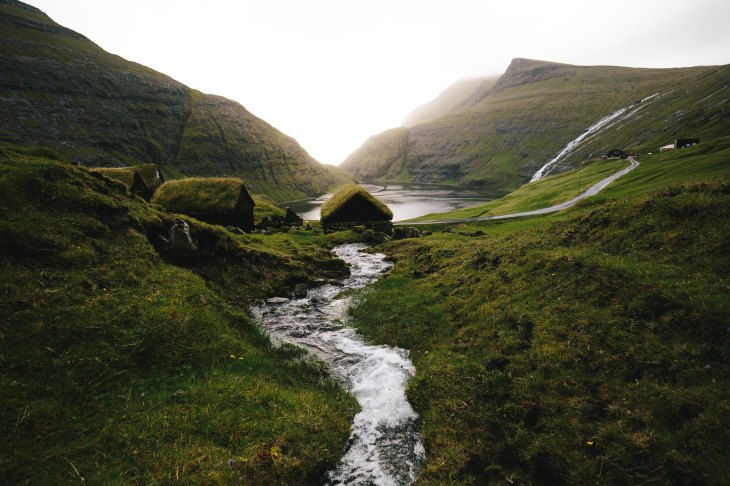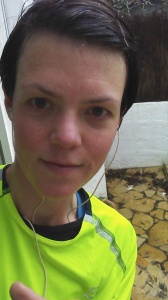Three years ago, if anyone had asked, I’d have said: I don’t get lonely.
Running away from it all
I’m a stone introvert – the kind who doesn’t just like to be alone but needs to be alone. In my 20s, I lived with friends or partners. Then, about the time most people start pairing up and shopping for pushchairs, I moved to Ibiza.
Time alone became the norm. Freelance writing, never the most social of professions, was a ticket to a lifestyle that, in retrospect, verged on isolation. But I was content. Or at least didn’t experience my situation as lonely.

Photo by Marc Zimmer on Unsplash
A slow tide
Discovering my capacity for loneliness happened gradually. Prior to meeting Chris I was happy to be a leaf drifting in the wind. Alone but not lonely.
When we fell in love and started rearranging our lives to be together, and I found myself lonely without him.
Acknowledging that should have been scary. What about my hard-won freedom? But it was so obvious, so inevitable, that I accepted it without a tremor.
Loneliness is not finite or discrete though. Our need for companionship extends beyond intimate relationships. When my internal barricade of plausible deniability/wishful thinking/calling it something else came down it made way for a tide of emotion.
Losing the everyday
Our abrupt move across the country taught me that the loss of familiarity – even routine, irritating, rubbish-strewn familiarity – can trigger paralysing loneliness.
The longer Chris and I have together, the more I crave the unthinkable: roots.
One big reason for moving was that we didn’t feel our last home was where we wanted to be long term. That’s still true, but it hasn’t stopped an onslaught of anxiety.
There were many good things about where we lived and it was comfortable. We didn’t have close friends or a lively social circle, but we had amiable neighbours. We knew their routinesroutines, signed for their packages, petted their dogs.
The old men sipping sherry at the corner kiosk waved hello as I walked to work, when my cat jumped out the window the kids playing outside banged on my door to tell me, the delivery drivers knew my ID number by heart.

Photo by Claudio Schwarz | @purzlbaum on Unsplash
Mundane treasures
Ripping myself away from all that revealed just how much energy goes into every day life. Snug in my routine, I forgot how draining, and how lonely, it is to have to think about everything. Thankfully, my intimate relationships and close friendships are intact, but that soothing web of mundane friendliness and ordinary interaction is gone for good.
Acquaintance, basic community, depends on presence. When you’re there you are part of it by default. If you leave you can come back as a visitor, or guest, but you’re not a thread in that particular tapestry any more.
Rebuilding
On the one hand (what we were thinking of as we hired a van, gave away old clothes, packed our life into boxes) a new setting is freedom. We can, in theory, rebuild the network any way we like. If we’re lucky, there will be new work, different perspectives, people who become dear friends.
On the other, leaving a place is a hard, expensive, exhausting enterprise that has no guarantee of coming good. I am lucky to have never, in the long term, regretted a move. Even Glasgow, my nadir, brought me cherished friendships and self-awareness.
One can, and does, rebuild. I’ve done it before. But those muscles are atrophied and honestly, all I want to do is curl up with my newfound-friend loneliness and cry.
Opening up to more
From an individual point of view, loneliness is maladaptive. Why face something that makes you miserable? (And stunts your health, motivation and productivity.)
Yet as people, we need loneliness. Otherwise, what becomes of empathy and cohesion?
Loneliness is fundamental to emotional development — along with heartbreak, happiness, disappointment, anger, and everything else that makes us human.
Maybe not in the short term (right now, I feel about as empathetic and giving as The Grinch) but over time, it inculcates an awareness of how fragile happiness is, and how much we can contribute to each others’ well-being.
When we open ourselves to loneliness we invite anxiety, insecurity and sadness – but we also, just possibly, make space for something new.
“It is not only indolence which causes human relationships to repeat themselves with such unspeakable monotony, unrenewed from one occasion to another, it is the shyness of any new, incalculable experience which we do not feel ourselves equal to facing.”
– Rainer Maria Rilke








